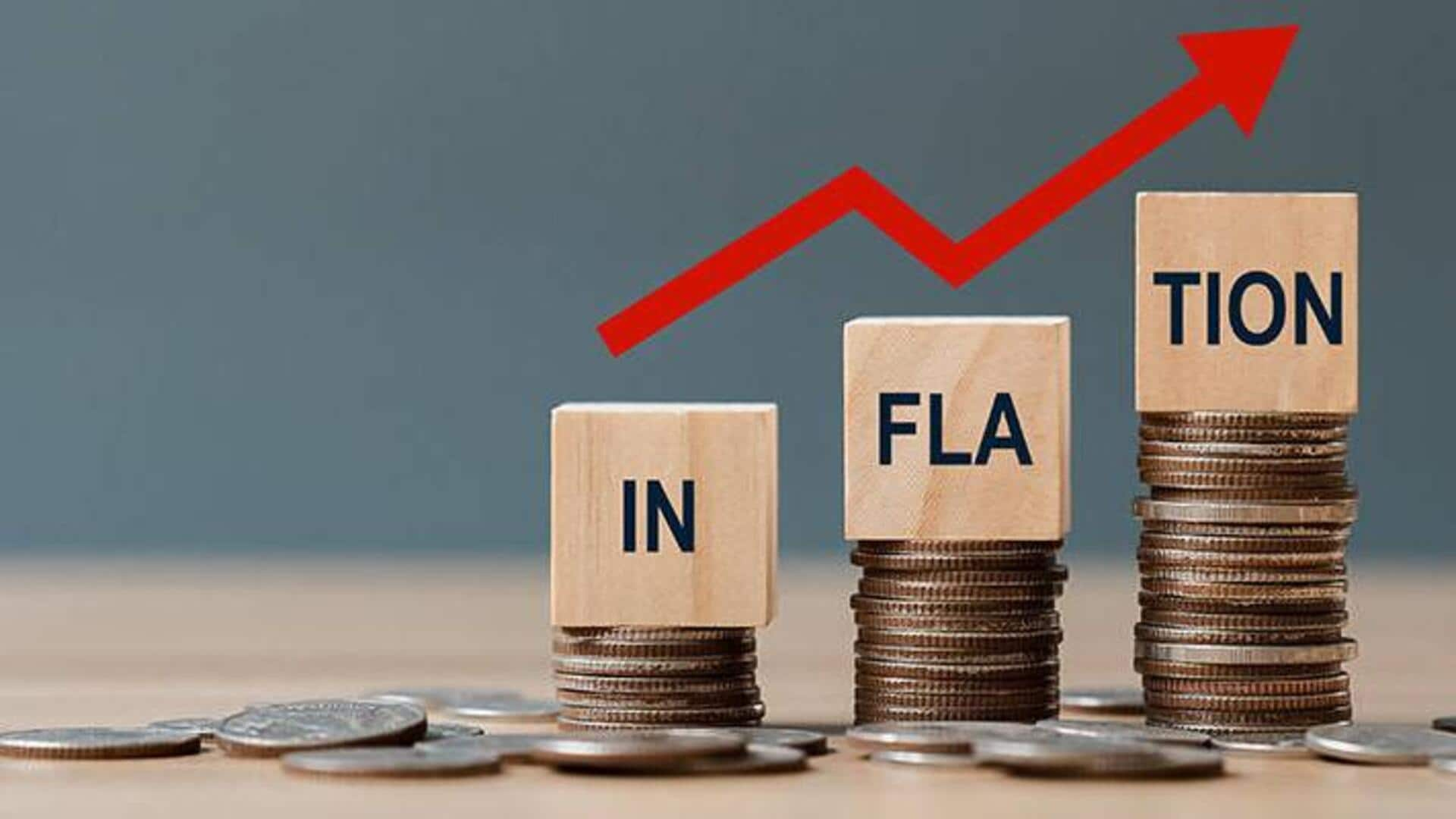
Attention! These are 5 ways inflation erodes your purchasing power
What's the story
Inflation is a persistent rise in the price of goods and services over time, and it can greatly affect your purchasing power.
As prices rise, the value of money diminishes, i.e. you can get less from the same amount of money.
Knowing how inflation affects your financial situation is important to make informed decisions regarding spending and saving.
Here are five ways inflation erodes your purchasing power.
Cost increase
Rising cost of living
As inflation increases, the cost of living goes up as well. Meaning, daily expenses like groceries, utilities, and transportation become costlier.
When prices rise but income remains the same or increases at a slower rate, people may struggle to keep up with their standard of living without adjusting their budget or curbing non-essential expenses.
Savings impact
Decreased savings value
To put it simply, inflation eats into the real value of savings.
If the interest on savings accounts is lower than the inflation rate, the purchasing power of saved money erodes.
For instance, if you have ₹10,000 in savings earning 2% interest but inflation is at 3%, your money essentially loses value year after year.
Fixed income effect
Lower fixed income purchasing power
People dependent on fixed incomes (pensions or annuities) may find their purchasing power diminished during high inflation.
Since such income sources do not usually adjust for rising prices automatically, recipients may find it difficult to meet rising costs without additional income sources or adjustments to their financial plans.
Borrowing expenses
Increased borrowing costs
Inflation also leads to higher interest rates since lenders want to be compensated for the loss of currency value over time.
This leads to an increase in borrowing costs for loans and mortgages.
Higher interest rates mean that consumers shell out more money over time when financing big-ticket purchases like homes or cars.
Investment decline
Erosion of investment returns
Inflation can erode investment returns by reducing the real gains from stocks and bonds if they do not outpace rising prices.
Thus, the investors need to consider strategies that account for inflation risk when building portfolios.
This way, you ensure long-term growth potential despite economic fluctuations affecting market conditions globally.